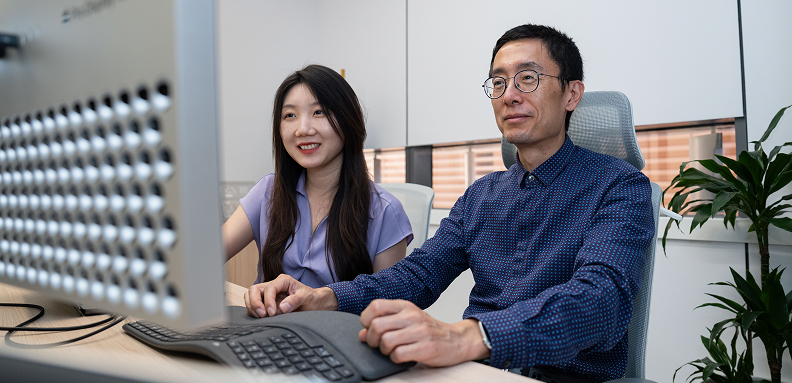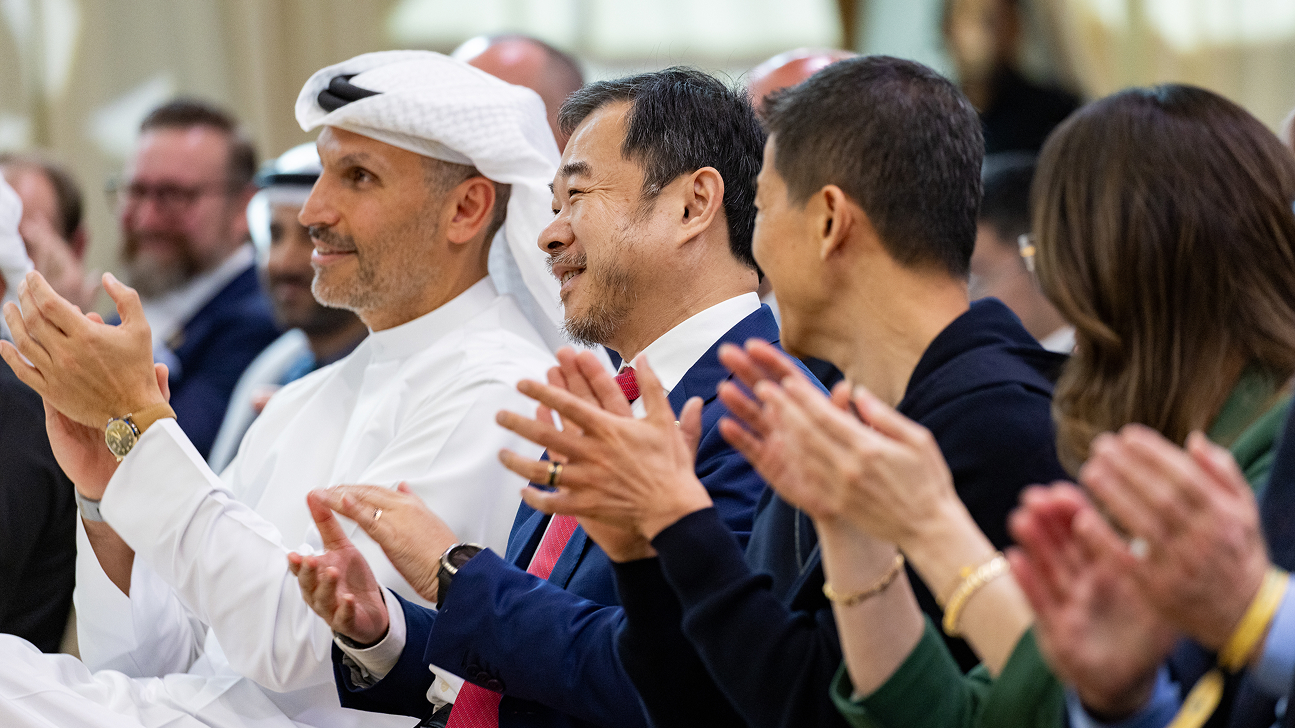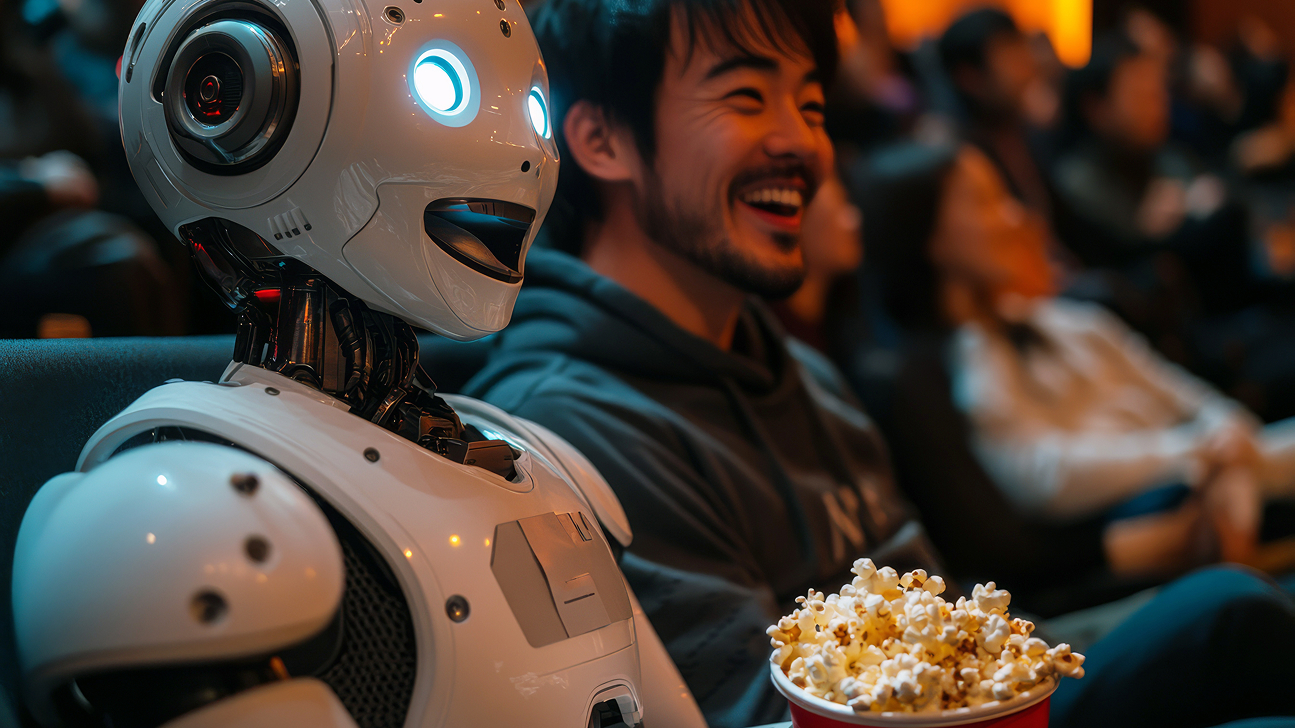Improving intelligent transportation systems through the metaverse
Thursday, May 30, 2024

The potential of advanced technologies to solve complex problems and drive innovation was a major motivation for Maryam Mohamed Buty Alghfeli to join Mohamed bin Zayed University of Artificial Intelligence (MBZUAI).
“My undergraduate studies in computer engineering provided me with a strong foundation in computing fundamentals, but I wanted to expand my knowledge in artificial intelligence,” she said. “So I chose to study at MBZUAI to pursue my passion for AI and contribute to real-world advancements in this field.”
Joining MBZUAI in 2022, and graduating this year with a master’s degree in machine learning, Alghfeli’s research centred on a subject that has captured the public imagination in recent years, and is developing fast: automated vehicles. More technically, she focused on intelligent transportation systems, using the metaverse to enhance vehicular networks.
“These networks can be used to enable a variety of applications for a massive number of autonomous vehicles, such as accident reporting, infotainment, and collision avoidance,” she explained. “However, developing and implementing metaverse empowered vehicular networks holds significant challenges, primarily due to computing and communication resource constraints.”
Alghfeli and her colleagues proposed a novel sensing, communication, and task offloading framework for the vehicular metaverse in order to address these issues. “Utilizing the metaverse for wireless systems in vehicular networks creates a transformative approach to transportation and mobility.” She said, adding that they defined a cost function considering transmission energy and transmission latency for the vehicular metaverse.
“The exponential growth of the global mobile traffic volume raises challenges with interference and congestion in the spectrum,” Alghfeli said. “So effective spectrum management is required to mitigate this issue.”
Another challenge Alghfeli faced during her research was to meet some design trends including self-sustainability and proactive learning in order to fulfil various requirements of vehicular network applications.
“The concept of self-sustainability in vehicular networks revolves around the network’s capability to operate seamlessly with less intervention from network operators,” she said. “This could be very beneficial in some situations like in disaster-stricken locations with insufficient infrastructure for network management.”
Furthermore, Alghfeli considered proactive learning approaches in the metaverse empowered vehicular network, with the aim of serving network users before they request services. “We can use data analysis and predictive techniques to analyze the network behavior and serve autonomous vehicles instantly using the pre-trained models,” she explained.
With so many autonomous vehicles executing tasks at the same time, including real-time mapping updates, pedestrian detection, lane change assistance, and accident reporting, Alghfeli also had to find a solution to processing the huge amounts of information. “Offloading some tasks to be computed at the network edge was necessary because of the limited computational resources,” she said.
Having meticulously worked through each of the questions and approaches, Alghfeli published a paper on the subject, and presented it with her colleagues earlier this year at the IEEE Wireless Communications and Networking Conference in Dubai.
The paper, A Joint Sensing, Communication, and Task Offloading Framework for Vehicular Metaverse, was included in the technical session about intelligent transport and connected vehicles, which also featured authors from China to Canada.
Alghfeli said that the strength of the faculty at MBZUAI was pivotal during her time at the university. “Studying at MBZUAI was truly exceptional,” she said. “The faculty and staff were constantly supportive, providing guidance and resource whenever needed.”
She added: “The university offered a dynamic learning environment. The quality of education combined with the expertise of the faculty and the diverse student community contributed to a fulfilling academic experience.”
In her spare time, Alghfeli says she enjoys reading, exercising, and unwinding with friends and family, as well as spending time in nature. This last point made her an ideal member of MBZUAI’s team at the Climate Ambassador’s Program — a session that took place in Dubai in the lead-up to COP28 in 2023. The team of eight students took part in an immersive role-play simulation designed to develop innovate solutions to address critical climate issues.
“Overall, my time at MBZUAI has been incredibly rewarding, and I’m grateful for the knowledge and skills I have gained,” she said.
Unsure yet whether she will move into full-time employment or apply for a Ph.D., Alghfeli is certain about one thing: “I will continue to work on and explore new AI trends and expand my knowledge in this field. I am deeply motivated to contribute to technological advancements that align with the UAE’s National AI Strategy 2031.
“I would like to express my deep gratitude and thanks to our leader, President His Highness Sheikh Mohamed bin Zayed Al Nahyan, who trusts in the potential of the youth and provides us with generous opportunities to grow and excel. His belief in our capabilities has empowered us to acquire knowledge and develop ourselves into successful individuals to serve our country, the UAE.”
Related
Not just another deck: how MBZUAI’s okkslides is redefining executive communication
The MBZUAI startup is turning messy research and organizational context into decision-ready narratives with a human-in-the-loop AI.....
Read MoreMBZUAI marks five years of pioneering AI excellence with anniversary ceremony and weeklong celebrations
The celebrations were held under the theme “Pioneering Tomorrow: AI, Science and Humanity,” and featured events, lectures,.....
- students ,
- celebration ,
- five year anniversary ,
- ceremony ,
- event ,
- board of trustees ,
- campus ,
- faculty ,
AI and the silver screen: how cinema has imagined intelligent machines
Movies have given audiences countless visions of how artificial intelligence might affect our lives. Here are some.....
- cinema ,
- art ,
- fiction ,
- AI ,
- artificial intelligence ,
- science fiction ,


